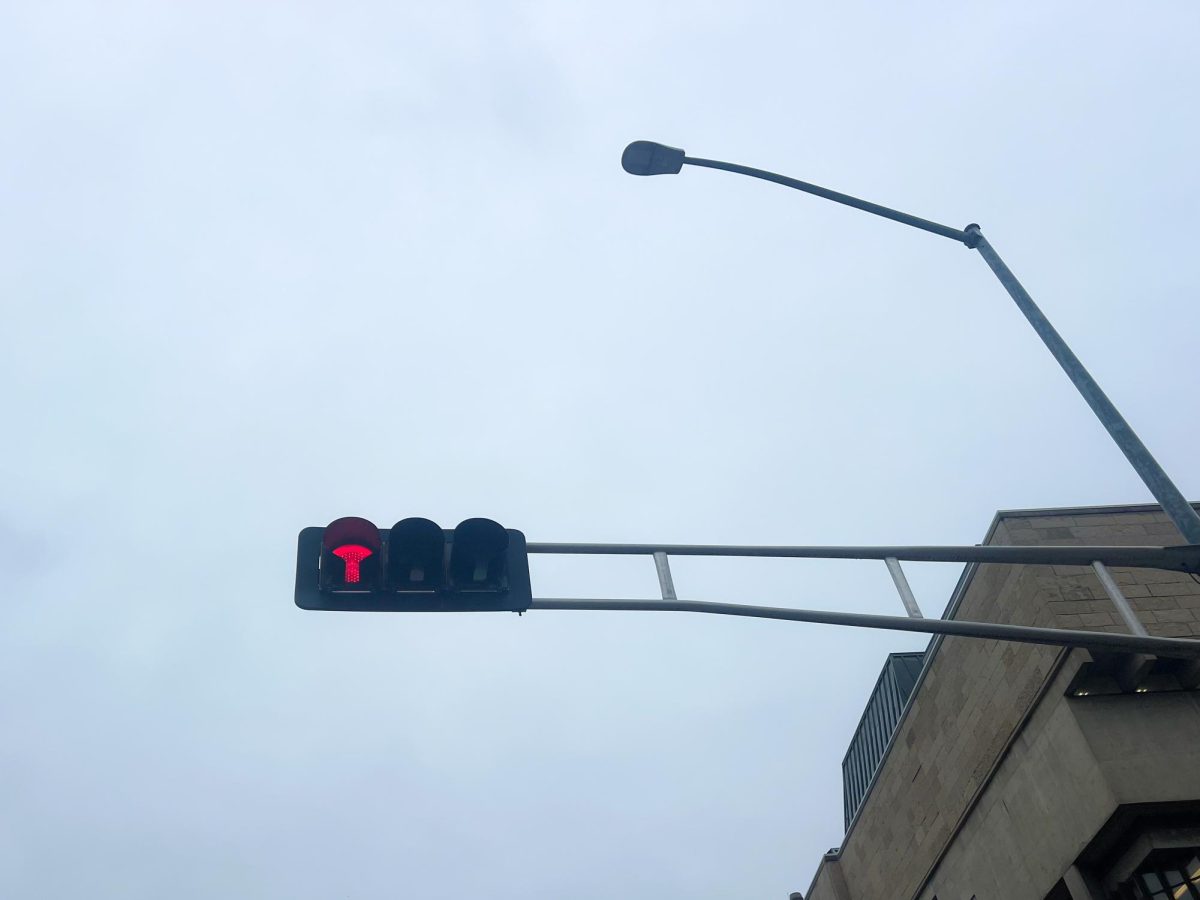An evening in the life of a University of Wisconsin Police Department officer entails a wide array of tasks, ranging from patrolling murky and secluded areas of campus to aiding house fellows in monitoring incapacitated students.
Officer Tanner Gerstner said the job comes with moments of absolute terror, whether it be the 10 minute drive from campus to detox, praying the individual in the backseat keeps bodily fluids inside or going from a routine traffic patrol to pursuing an armed suspect at a moment’s notice.
While the excitement was relatively low Saturday night, Gerstner’s patrol took him to the nooks and crannies hidden in the crevices of Madison. His night began with a drive through dark and unpopulated areas of the city, checking parking lots of temporarily deserted campus buildings and the pathways of the eerily dark Arboretum.
“It doesn’t happen all too often, but sometimes we see drug deals, gang-related activity or sometimes even prostitution back here,” Gerstner said as he drove through the Arboretum’s stretch with the vehicle’s sidelights gleaming. “We’ll also catch kids out here engaging in [sexual activities], but we’ll send them home because it’s not good to be out here in a dark area where they might not know where exactly they are and aren’t capable of paying attention to their surroundings.”
After a clean sweep and a stop at the Eagle Heights housing lots “just to make [UWPD’s] presence known around here,” Gerstner continued patrol of the campus area, highly concentrated with intoxicated students roaming between bars and house parties.
While checking in on the area’s parking garages to ensure no suspicious behavior was in the works, a call came over the radio asking for officers to respond to a house fellow’s call to 911 for an incapacitated resident.
Arriving on scene, Gerstner was met by the primary officer heading the call, an additional backup officer and a team of three volunteer emergency medical service personnel. Despite registering a .14 blood alcohol content level, the student residing in Jones House on the lakeshore was medically approved by the EMS team.
UWPD did not hand out a ticket on the spot, but after pouring out the remainder of the student’s alcohol and telling him to stay in for the night, the student was instructed UWPD officers would return the next night to discuss what went wrong, how the student was feeling about the situation and issue a ticket.
The underage student was not taken to detox, Gerstner said, because he was not visibly incapacitated and was deemed capable of taking care of himself through a detox evaluation.
“We test how oriented the person is by asking the date, time and place, and then we ask questions to divide their attention to determine cognitive capacity,” Gerstner said. “My favorite is asking whether Mickey Mouse is a cat or a dog while making hand gestures – intoxicated people often have trouble sticking with their choice.”
Officers on the squad are also renowned for asking evaluation subjects whether an elephant or the moon is larger, making smaller gestures while mentioning the moon, Gerstner said with a chuckle.
While college campuses are notorious for drinking cultures, Gerstner said students at UW rarely drink purely in a social climate.
“It’s not ‘let’s have a social drink,’ but instead it’s always ‘let’s get drunk,'” he said.
Still, Gerstner, who started out in the manufacturing industry, said law enforcement on the UW campus is an especially unique profession, and he is enjoying his time protecting and aiding the community.
“It’s a common misconception that we’re out here to get you guys when the reality is we’re here to help and protect and work by crime prevention through environmental design,” he said. “The belief is we get some sort of reward for writing tickets and executing busts, but that’s simply not the case.”
Because Madison is a college town, the officer said, UWPD has few other tools capable of deterring negative and illegal behavior based on the city’s transient population.
While Gerstner said it is easy to momentarily lose faith in humanity as a law enforcement officer, it is necessary to remind those in blue that the world is a good place with a few bad eggs.
“In a perfectly ideal circumstance, no one should have to worry about being a victim, but we live in a deviant world and you cannot eliminate all of the deviant people,” Gerstner said. “Madison is certainly a very low city for crime comparatively, but that does not mean we’re free of it.”












